A disability certificate is an official document issued by the government that recognizes an individual’s disability and provides access to various benefits, including financial aid, job reservations, healthcare services, and educational support. In India, having this certificate is essential for persons with disabilities to claim their legal rights and avail themselves of government schemes.
Many people, however, struggle with the application process due to a lack of clear information and unnecessary delays. If you or a loved one needs a disability certificate, understanding the correct procedure can save time and effort. This guide will walk you through every step, ensuring that you know exactly what to do, where to go, and what documents to carry.
By the end of this article, you will have a clear roadmap to obtaining your disability certificate without unnecessary hassle.
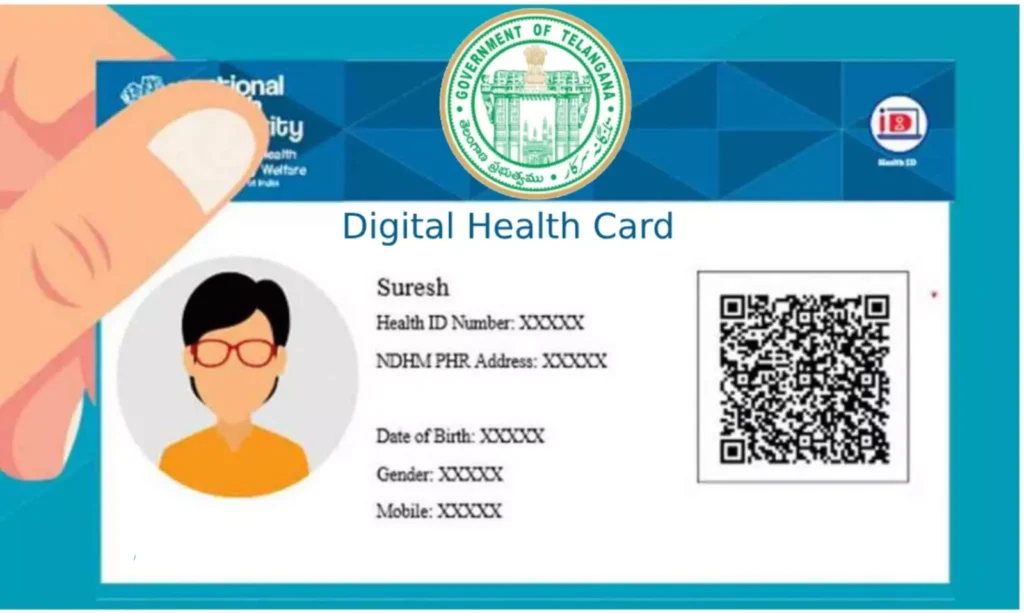
Who Can Apply for a Disability Certificate?
The disability certificate is meant for individuals with specific disabilities recognized under the Rights of Persons with Disabilities (RPWD) Act, 2016.
The law defines 21 categories of disabilities, including physical, intellectual, sensory, and neurological conditions. Some of the common disabilities covered include blindness, hearing impairment, cerebral palsy, muscular dystrophy, autism, and multiple sclerosis.
To qualify for a disability certificate, the individual must have a minimum of 40% disability, as assessed by a certified medical authority. The percentage of disability is determined based on medical examinations, which are conducted as part of the certification process.
If you are unsure whether your condition qualifies, visiting a government hospital for an initial consultation with a specialist can help clarify your eligibility. Medical experts will assess the severity of your disability and guide you on the next steps.
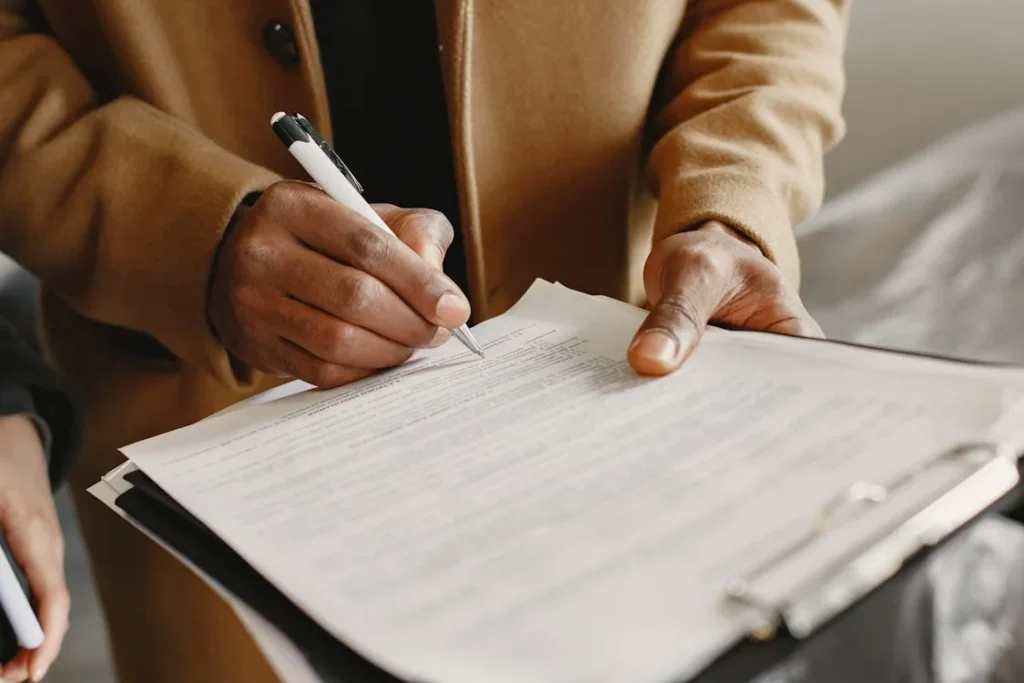
Where to Apply for a Disability Certificate?
The disability certificate is issued by government hospitals and medical boards across India. The exact office to visit depends on your location and the type of disability you have.
In most cases, applicants need to visit the Chief Medical Officer (CMO) office in district hospitals or designated government healthcare centers. Some medical colleges and AIIMS branches also provide disability certification services.
For neurological and intellectual disabilities such as autism or mental illness, applicants may need to visit a specialist medical board consisting of psychiatrists, neurologists, or pediatricians.
The process may differ slightly depending on the disability type, but all applicants must go through medical evaluation before receiving certification.
If you are applying in a major city, hospitals like AIIMS, Safdarjung Hospital, PGIMER, NIMHANS, and other central government hospitals are authorized to issue disability certificates. In smaller towns and rural areas, district government hospitals handle the certification process.
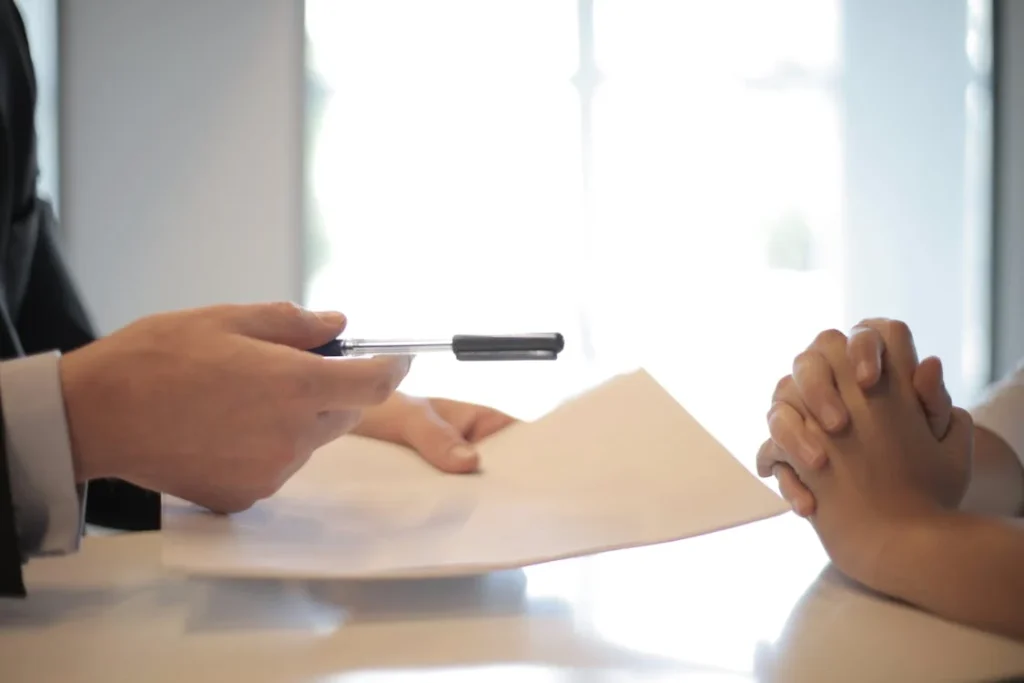
Documents Required for a Disability Certificate
Applying for a disability certificate requires several important documents. Ensuring you have everything in order before starting the application process can save time and prevent delays.
The documents you need will primarily include medical reports, identification proof, and application forms.
Personal Identification and Proof of Address
A disability certificate is an official government document, so applicants must provide valid proof of identity. This includes an Aadhaar card, voter ID, passport, or any other government-issued identification.
These documents confirm the applicant’s name, date of birth, and address, ensuring that the certificate is issued correctly.
Proof of address is also necessary. Utility bills, ration cards, or domicile certificates can be used to establish residency. Since disability certificates are issued at the state or district level, residency proof ensures that the application is processed in the correct location.
For applicants who have recently moved to a different state, it is advisable to apply in their current place of residence to avoid complications.
Medical Records and Disability Diagnosis Reports
Medical verification is a crucial step in obtaining a disability certificate. Applicants must submit reports confirming their disability, which must be issued by recognized hospitals or specialists.
These reports should include details such as the diagnosis, severity, and extent of impairment. In cases of progressive conditions, the latest medical records should be provided to reflect the current status of the disability.
For physical disabilities, X-rays, MRI scans, and orthopedic assessments may be required. In cases of blindness, hearing loss, or neurological conditions, reports from ophthalmologists, audiologists, or neurologists will be needed.
Individuals with intellectual disabilities or autism spectrum disorders must provide psychological assessments or reports from pediatricians or psychiatrists. The government medical board will review these reports before conducting its evaluation.
Application Form and Passport-Sized Photographs
Most government hospitals and disability boards require applicants to fill out an official application form. This form asks for details about the applicant’s disability, medical history, and personal information.
It must be completed accurately and submitted along with other required documents. Some states allow online submission of applications, but in most cases, applicants will need to visit a hospital or government office in person.
A few recent passport-sized photographs are also required. These are used for the certificate itself and other official records. It is recommended to carry extra copies in case they are needed during the process.
Attestation and Verification of Documents
Once all documents are collected, they must be submitted to the designated medical board for verification. Some states require documents to be attested by a notary or government officer before submission.
This ensures that all records provided are authentic and meet legal requirements. If any documents are missing or unclear, officials may ask for additional paperwork, so applicants should double-check everything before submitting.
After verification, the medical board will schedule an evaluation to assess the disability. This step is crucial in determining the percentage of disability and whether the applicant qualifies for certification under government guidelines.
The outcome of this assessment will determine whether the certificate is approved.
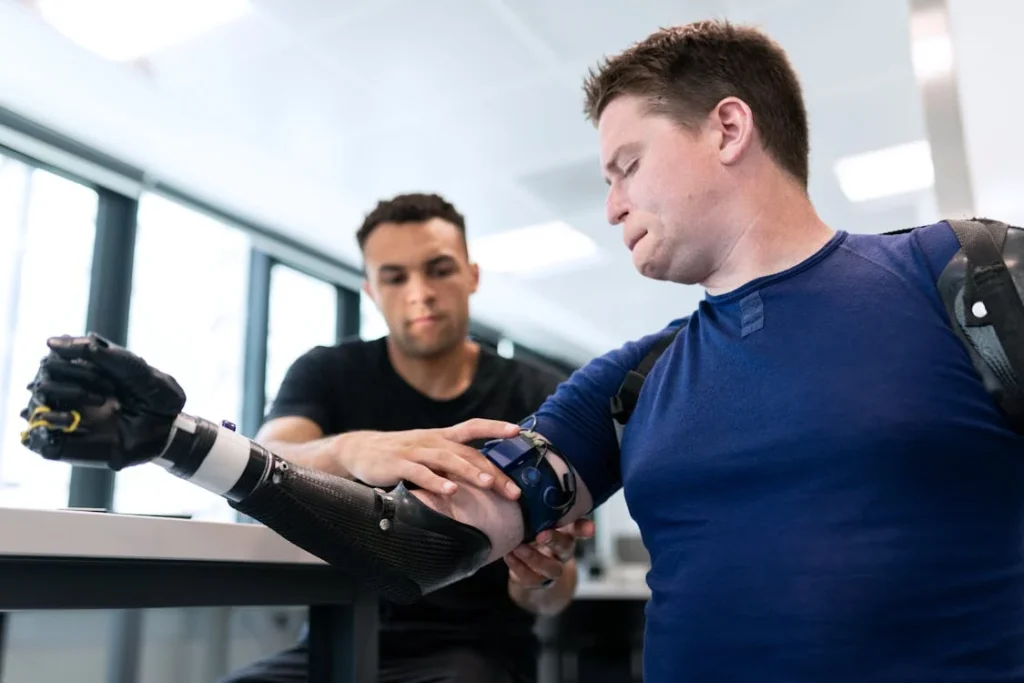
Medical Examination and Disability Assessment
Once the required documents have been submitted, the next step in the application process is the medical examination.
This assessment is conducted by a government-appointed medical board, which evaluates the severity of the disability and determines the percentage of impairment.
The examination is crucial because only individuals with a disability of 40% or more are eligible for a disability certificate under the Rights of Persons with Disabilities (RPWD) Act, 2016.
How the Medical Examination is Conducted
The medical examination takes place at a designated government hospital or medical college. The exact process varies depending on the type of disability.
Applicants will be required to visit a specialist based on their condition. For example, individuals with orthopedic disabilities may need to see an orthopedic surgeon, while those with visual impairments will be assessed by an ophthalmologist.
During the examination, the medical board reviews the applicant’s medical history, existing reports, and test results. They may conduct additional tests to confirm the extent of the disability.
In some cases, multiple specialists from different fields, such as neurologists, psychiatrists, or physiotherapists, may be involved in the evaluation. The goal is to ensure that the disability assessment is accurate and aligns with government-defined criteria.
For conditions that are progressive, such as muscular dystrophy or multiple sclerosis, the medical board may request follow-up evaluations over time to track changes in the severity of the disability.
In such cases, the certificate issued may have an expiry date, requiring the individual to undergo a reassessment after a few years.
Understanding the Disability Percentage Calculation
The percentage of disability is calculated based on guidelines issued by the government. These guidelines use specific medical criteria to determine how much the disability affects an individual’s daily life and overall functionality.
Different conditions have different methods of calculation.
For physical disabilities, factors such as loss of movement, strength, or coordination are considered. In cases of blindness, the degree of vision loss is assessed, while for hearing impairments, the percentage of hearing loss in both ears is measured.
Intellectual and neurological disabilities are evaluated based on cognitive function, behavioral patterns, and developmental assessments.
Once the medical board finalizes the disability percentage, it is recorded in the applicant’s file. If the individual’s disability is 40% or more, they qualify for a disability certificate and the associated government benefits.
If the percentage falls below 40%, the application may be rejected. In such cases, the applicant can request a review or seek re-evaluation if their condition worsens over time.
Issuance of the Disability Certificate
If the medical examination confirms eligibility, the applicant is approved for a disability certificate. The certificate is either issued on the same day or within a few weeks, depending on the hospital’s processing time.
In some states, the certificate is provided in a physical format, while in others, a digital version is generated and linked to the applicant’s Aadhaar number.
The disability certificate contains important details, including the applicant’s name, type of disability, percentage of impairment, date of issue, and the signature of the authorized medical officer.
It serves as official proof of disability and is required for accessing government benefits, job reservations, travel concessions, and financial assistance.
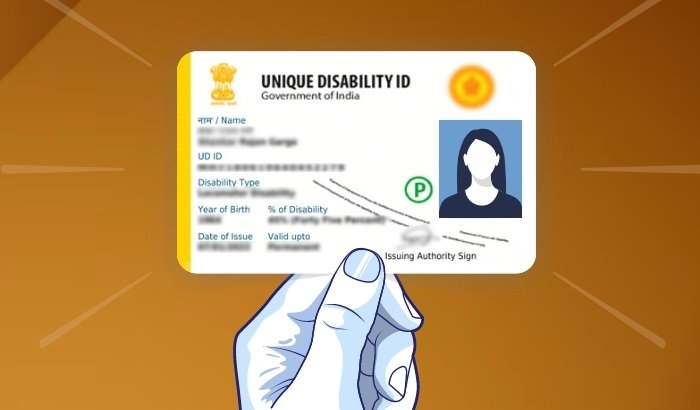
Applying for the Unique Disability Identity (UDID) Card
Once a person has received their disability certificate, they are also eligible to apply for the Unique Disability Identity (UDID) Card, which was introduced by the Government of India to create a centralized database of persons with disabilities.
This card acts as a single document for availing various benefits, eliminating the need to carry multiple papers for different schemes and services.
The UDID card is linked to an individual’s Aadhaar number and can be used across states, making it especially useful for those who travel or relocate frequently.
Why the UDID Card is Important
The UDID card simplifies the process of accessing government schemes and benefits. With this card, individuals do not need to apply separately for disability pensions, employment reservations, or travel concessions every time they need assistance.
The card also helps authorities maintain a national registry, which aids in policy-making and ensures that welfare programs reach those who need them.
Unlike traditional disability certificates, which might need renewal in certain cases, the UDID card is designed to be a lifetime document for those with permanent disabilities.
However, for individuals with progressive conditions like muscular dystrophy or multiple sclerosis, periodic reassessments may still be required.
How to Apply for a UDID Card
The application process for the UDID card is straightforward and can be completed online through the Swavlamban portal (https://www.swavlambancard.gov.in). Individuals who have already received their disability certificate can register on this portal and apply for the card by submitting their details.
To complete the application, individuals need to provide basic personal information, including their disability certificate number, Aadhaar number, contact details, and a recent photograph.
Once submitted, the application is verified by the issuing authority, and the UDID card is either sent via post or made available for download on the portal.
For those who have not yet received a disability certificate, the same portal allows them to apply for both the disability certificate and the UDID card simultaneously. This integration helps streamline the process and reduces paperwork for applicants.
Challenges and Solutions in the UDID Card Application Process
While the UDID system is a step forward in simplifying documentation for persons with disabilities, some applicants have reported delays in processing times.
These delays often occur due to technical issues on the portal, slow verification processes at local hospitals, or lack of awareness about the digital system.
To address these issues, individuals facing difficulties can seek assistance from district disability welfare offices, government hospitals, or NGOs working in the disability sector.
Many advocacy groups provide guidance on how to navigate the application process and ensure that applicants receive their cards without unnecessary delays.
Ensuring that every eligible person obtains their UDID card will help make disability-related services more accessible and reduce bureaucratic challenges.
The government is continuously working on improving the system, and increased awareness about the UDID program will encourage more persons with disabilities to apply and benefit from its advantages.

Benefits of Having a Disability Certificate in India
A disability certificate is more than just an official document—it is a key that unlocks various rights, benefits, and opportunities for persons with disabilities in India.
From financial support to employment reservations, education benefits, and travel concessions, having this certificate ensures that individuals with disabilities receive the assistance they need to lead independent and fulfilling lives.
Understanding these benefits can help applicants make full use of the resources available to them.
Financial Assistance and Social Security
One of the most important benefits of having a disability certificate is access to financial support programs. The Government of India, along with various state governments, provides disability pensions to individuals who are unable to work due to their condition.
Schemes such as the Indira Gandhi National Disability Pension Scheme (IGNDPS) offer monthly financial assistance to help cover basic expenses. Additionally, many states run their own pension schemes with varying benefit amounts, depending on the severity of the disability.
Apart from pensions, persons with disabilities are eligible for income tax exemptions under the Income Tax Act, Section 80U. This allows individuals to reduce their taxable income, lowering their overall tax burden.
Parents or guardians of persons with disabilities can also claim tax deductions under Section 80DD for expenses related to medical care, special education, or rehabilitation.
For those who wish to start a business or pursue self-employment, government-backed loans and grants are available.
Organizations such as the National Handicapped Finance and Development Corporation (NHFDC) provide low-interest loans to persons with disabilities for setting up businesses, purchasing assistive devices, or acquiring vocational training.
These financial support systems aim to promote economic independence and self-sufficiency.
Reservations in Education and Employment
Persons with disabilities in India have the right to reserved seats in educational institutions and government jobs.
The Rights of Persons with Disabilities (RPWD) Act, 2016, mandates that educational institutions, including schools, colleges, and universities, must provide inclusive education and reserve 5% of seats for students with disabilities.
These institutions are also required to offer necessary accommodations, such as assistive technology, special educators, and modified curriculum plans.
In the employment sector, government jobs have a 4% reservation for persons with disabilities. This applies to positions across different departments and includes opportunities in public sector undertakings (PSUs).
Private companies are also encouraged to adopt inclusive hiring practices, and some even offer special recruitment drives for persons with disabilities.
For those looking to enhance their skills, various government-funded vocational training programs provide specialized courses tailored to the needs of persons with disabilities.
These programs help individuals acquire technical skills, improving their employability and career prospects.
Travel Concessions and Accessibility Benefits
Traveling can be a major challenge for persons with disabilities, but the Indian government offers several concessions to make mobility easier.
Individuals with disability certificates can avail of discounts on train and bus fares, with the Indian Railways offering up to 75% concession on ticket prices for persons with disabilities and their caregivers.
Many state transport departments also provide free or heavily discounted bus travel.
Air travel concessions are available as well, with domestic airlines offering ticket discounts for passengers with disabilities. Some airports provide free wheelchair assistance, priority boarding, and accessible check-in counters, ensuring a smoother travel experience.
Public infrastructure is gradually becoming more accessible, with new railway stations, metro systems, and government buildings incorporating ramps, elevators, and wheelchair-friendly pathways.
While accessibility challenges still exist, having a disability certificate helps individuals demand these facilities when they are not provided.
Healthcare and Rehabilitation Services
Medical care is a crucial aspect of support for persons with disabilities, and having a disability certificate makes it easier to access free or subsidized healthcare services.
Government hospitals provide free treatment for disability-related conditions, including surgeries, therapies, and rehabilitation services.
The Assistance to Disabled Persons for Purchase/Fitting of Aids and Appliances (ADIP) Scheme helps individuals obtain assistive devices such as wheelchairs, hearing aids, and prosthetic limbs at reduced costs.
Rehabilitation programs, including physiotherapy, occupational therapy, and speech therapy, are also available through government-run centers and NGOs.
These programs help individuals regain independence and improve their quality of life. Many states have also introduced mobile medical units that provide doorstep healthcare services to persons with disabilities, particularly in rural areas.
Legal Rights and Protection Against Discrimination
A disability certificate not only provides access to benefits but also serves as a legal document that protects individuals against discrimination.
Under the RPWD Act, 2016, persons with disabilities have the right to equal treatment in education, employment, and public spaces.
If an individual faces discrimination due to their disability, they can file a complaint with the State Commissioner for Persons with Disabilities or take legal action against the offender.
The law also mandates that public and private institutions must provide reasonable accommodations for persons with disabilities.
This includes modifications in workplaces, schools, and public transport to ensure accessibility. If an organization fails to comply, individuals have the right to report them and seek corrective action.
Having a disability certificate strengthens an individual’s ability to demand their rights and seek legal remedies when necessary. It ensures that persons with disabilities are not excluded from opportunities due to physical or societal barriers.
Ensuring Equal Opportunities and Inclusion
The benefits provided through a disability certificate go beyond financial assistance and reservations—they are designed to create an inclusive society where persons with disabilities have the same opportunities as everyone else.
Whether it is through education, employment, healthcare, or travel concessions, the goal is to ensure that individuals can lead independent, dignified lives without unnecessary restrictions.
However, many people remain unaware of the advantages they are entitled to. Spreading awareness about the disability certification process and its benefits is crucial in ensuring that more individuals come forward to claim their rights.
Government agencies, NGOs, and advocacy groups play a significant role in educating the public and assisting individuals in navigating the application process.
While progress has been made in recent years, there is still much to be done to ensure that every person with a disability in India has access to the rights and resources they deserve.
Obtaining a disability certificate is the first step in this journey, opening doors to opportunities that can significantly improve one’s quality of life.
Conclusion
Obtaining a disability certificate in India is essential for accessing government benefits, healthcare services, education, and employment opportunities. While the process involves medical examinations and documentation, understanding the steps can make it smoother and more efficient. With the introduction of the Unique Disability Identity (UDID) Card, individuals can now consolidate their benefits under a single identification system, making it easier to access essential services without repeated paperwork.
Despite the legal framework, many applicants face delays due to bureaucratic inefficiencies and lack of awareness. Seeking assistance from district disability welfare offices, NGOs, and online portals can help navigate these challenges. As awareness grows and technology improves, the process of obtaining a disability certificate and UDID card is expected to become more streamlined.
For persons with disabilities, these documents serve as more than just identification—they provide access to rights, dignity, and independence. If you or a loved one needs a disability certificate, taking the right steps early can ensure you receive the benefits and support you deserve.
If you are looking for high-quality prosthetics or rehabilitation solutions, Robobionics is here to help. Contact us today to explore our advanced assistive technology designed for better mobility and independence!




ganesh Babar